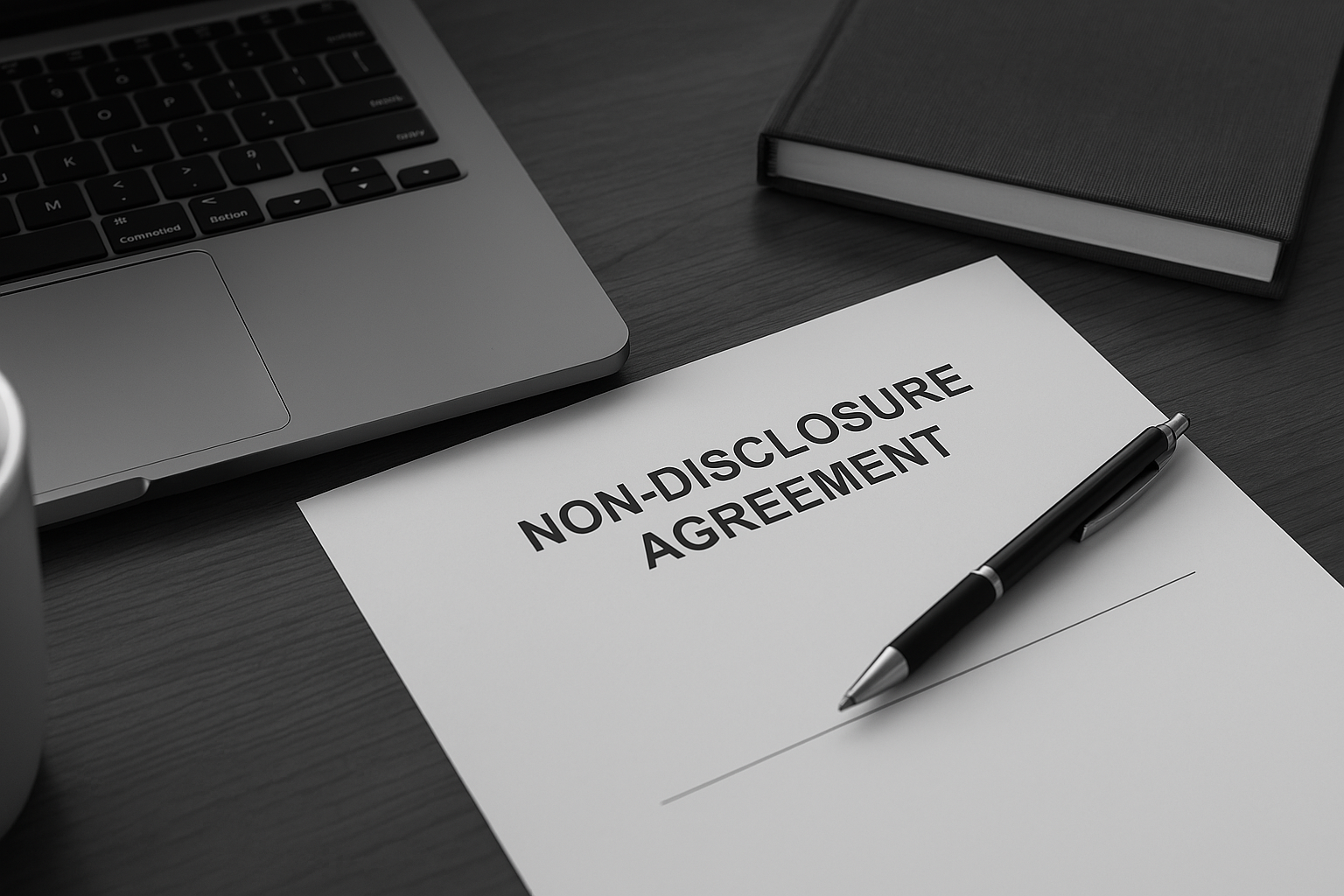Do You Really Need a Non-Disclosure Agreement for Freelancers?

Hiring a freelancer can be a great way to get quality work done without the long-term commitment of hiring a full-time employee. But when it comes to protecting your ideas, data, and business secrets, you might wonder: do you really need a non-disclosure agreement for freelancers?
In this blog post, we’ll break down why NDAs are important in freelance relationships, what they cover, and how to use them effectively. We’ll also discuss alternatives, limitations, and smart drafting tips.
Why Use a Non-Disclosure Agreement for Freelancers?
A non-disclosure agreement (NDA) is a legal document that prevents the freelancer from sharing or misusing confidential information. Even though freelancers are not employees, they often have access to sensitive details about your business, such as:
- Marketing strategies and campaign plans
- Product roadmaps and upcoming features
- Client lists or contact information
- Financial data or internal processes
- Source code, designs, or proprietary content
Without a signed NDA, it can be difficult to take legal action if a freelancer misuses your confidential information.
Freelancers vs. Employees: Why NDAs Still Matter
Employees are usually bound by company policies, handbooks, or long-term contracts. But freelancers typically work on short-term projects and may collaborate with multiple clients in the same industry.
That’s why it’s even more important to use a non-disclosure agreement for freelancers. It creates a clear legal boundary that protects your business, even after the project ends.
What NDAs Protect
An NDA can be used to safeguard:
- Ideas: Innovative business concepts, product ideas, or creative strategies
- Data: Customer databases, passwords, analytics, and internal reports
- Processes: Workflow systems, manufacturing methods, or unique approaches
You can also specify what is not confidential, such as information that’s already public or known by the freelancer before the agreement.
Enforceability and Limitations
NDAs are enforceable in most jurisdictions, but their strength depends on how they’re written:
- Reasonable scope: Avoid overly broad terms that may be seen as unfair.
- Time limit: Include a specific duration (e.g., 1-3 years).
- Governing law: Clearly state which country’s laws apply.
However, NDAs do not protect against independent creation or reverse engineering. Also, if the information was never marked as confidential, you may have difficulty enforcing the agreement.
Alternatives to NDAs
Sometimes, an NDA may not be the best fit. You can consider other options, especially in short-term or low-risk engagements:
- Confidentiality clauses in the main contract: Instead of a separate NDA, include a short confidentiality section in your freelance agreement.
- Intellectual Property (IP) Assignment: Ensure you own the work product and that the freelancer doesn’t claim future rights.
- Access limitation: Only share the data they absolutely need.
Drafting Tips for Short-Term Freelance Projects
Here are a few best practices when using a non-disclosure agreement for freelancers:
- Keep it simple: Avoid complex legal jargon.
- Define “confidential information” clearly.
- Mention consequences for breach of agreement.
- Tailor the duration of confidentiality to the project type.
- Use digital signature tools for faster execution.
Conclusion
So, do you really need a non-disclosure agreement for freelancers? In most cases, yes. If your freelancer will have access to anything sensitive, it’s a smart move to use an NDA or at least include confidentiality clauses in your contract. It doesn’t have to be long or complex—just clear, specific, and enforceable.
Protecting your business starts with having the right agreements in place


Leave a Reply